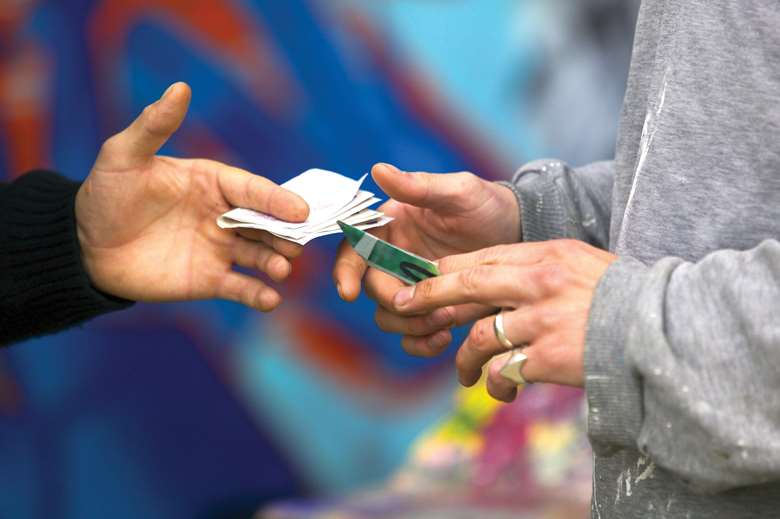Skills for the Job: Drugs education for young people
Andrew Brown
Monday, July 21, 2014
Recognising the signs of drug use in young people is important for professionals, but so is ensuring the right support is available.

Why do young people take drugs?
What young people tell us is that the first time they take drugs it is usually out of curiosity, but if they try them again it will be because they want to get "high" or "feel good". There are various factors that appear to make it more likely that a young person might take drugs, which include: to fit in with a group; being excluded from school; being involved with the criminal justice system; experience of the care system; mental health problems; and having family members who take drugs or who appear not to mind if their children do. There is also evidence that those with particular personality types may take risks with drugs, particularly those who are sensation seekers and have impulsivity issues.
What are the current drug use trends among young people?
A recent survey of 15- to 24-year-olds across Europe suggested about 18 per cent of UK young people used cannabis in the past year, compared to the European average of 17 per cent. The survey asked about use of new psychoactive substances (sometimes called legal highs), suggesting that 10 per cent have used them at least once in the UK (up from eight per cent in 2011). Fewer school pupils say they have taken illegal drugs than at any point in the last decade, with 83 per cent saying they have never taken drugs. But the proportions claiming they had taken drugs increases with age, from seven per cent of 11-year-olds to 31 per cent of 15-year-olds. About 20,000 young people received treatment for drug and alcohol issues in England last year. There has been a 44 per cent increase in the number receiving treatment for cannabis use since 2005.
What are the health and social implications?
Early use of drugs and alcohol are associated with a range of other problems, including mental health conditions, school failure and being involved in the criminal justice system, as well as making it more likely that there will be long-term substance use problems. The cost of young people's drug use is estimated to be over £100m a year, almost all of which are costs to the police and criminal justice system. Research into the long-term costs of problematic drug use suggests that each person with long-term issues costs society between £800,000 and £820,000. Last year, more than 6,500 people were hospitalised for mental health and behaviour disorders as a result of their drug use, 12,200 were hospitalised having been poisoned by illicit drugs and about 1,500 people in England and Wales died.
How do you know if a young person is using drugs?
It can be difficult to know if someone is using drugs, particularly if the use is infrequent, and some of the signs that they may be using could be caused by other things in their lives. For example, out-of-character behaviour and moodiness can be symptoms of drug use, but may be caused by things like puberty, bullying or relationship problems also. Often the best way to find out if someone is starting to have problems with drug use is to ask, but to get people to come forward they need to know that they will be able to access the right support. Last year, more than 6,500 referrals to treatment services came from education services, five times as many as were referred by families.
What should you do if you believe a young person is using drugs?
Do not wait until you are worried to have the conversation. Finding out what young people know and believe about drug use can be used to correct misconceptions and allows them a safe space to develop their values when it comes to drugs. Nevertheless, if you think someone is using drugs, stay calm and establish the facts and make sure you follow the drug policy of your organisation, which will tell you about what information you may need to pass on to the police and parents, and how you can refer the young person to specialist services if that is appropriate. Young people who are having problems with drugs will need help and support if they are to become resilient.
TOP TIPS
- Don't assume that young people have experience of drugs
- Be clear about what confidences you can keep and which ones may need further action
- Young people may have relatives who are having or have had drug problems, and may react strongly
- Be clear about where young people can seek help
- For more information, visit www.drugscope.org.uk
Andrew Brown, director of policy, DrugScope




